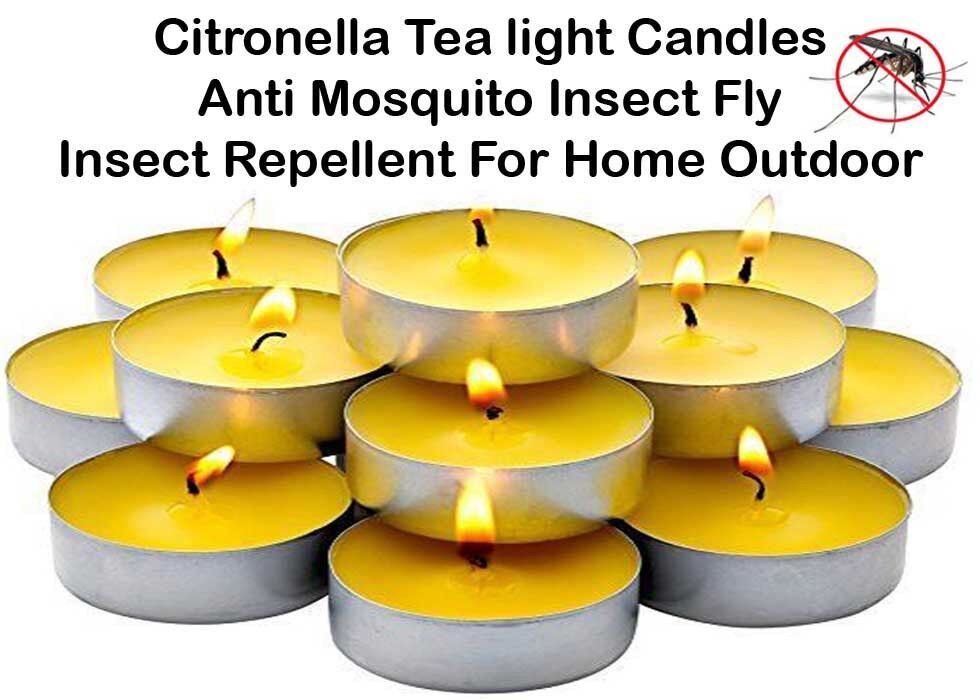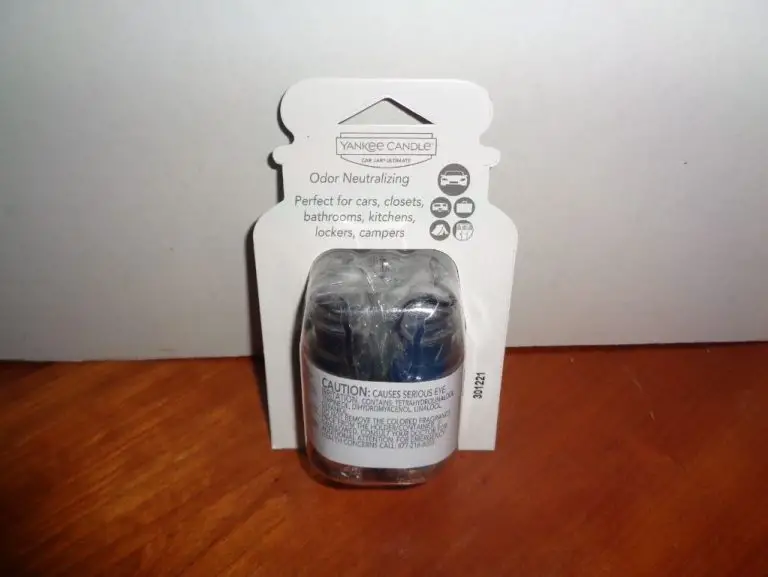Does Lighting Candles Get Rid Of Bugs?
Mosquitoes and other pesky flying insects can ruin an otherwise pleasant summer evening outside. Many people turn to lighting citronella candles in hopes that the aroma will drive the bugs away. But do citronella candles actually repel mosquitoes and other insects? In this article, we’ll examine the science behind citronella and other scented candles and their effectiveness at deterring bugs. We’ll also discuss alternative natural repellents, safety tips for using candles, and when it’s best to call in a professional pest control service.
How Bugs Navigate
Bugs like mosquitoes, flies, and moths rely heavily on their sense of smell to find food, mates, and places to lay eggs. Their antennae contain receptor cells that can detect chemicals in the air called odorants. When an odorant binds to a receptor, it sends a signal to the insect’s brain that helps it identify the smell and navigate toward or away from it.
For example, female mosquitoes use smell to locate animals like humans to feed on. They can detect carbon dioxide and substances like lactic acid given off by our bodies from up to 50 meters away (1). Male moths, on the other hand, use smell to find female mates sometimes miles away by picking up on pheromones the females release.
In addition to smell, bugs also use vision to locate food and resources. Mosquitoes and other insects are attracted to certain wavelengths of light, so light sources like lamps or candles can draw them in (2).
Understanding how insects use senses like smell and vision to navigate gives us insight into how we might be able to disrupt these behaviors, for example by using scented products that mask human odors or altering lighting to make an area less attractive to bugs.
(1) https://news.weill.cornell.edu/news/2016/09/how-the-nose-knows
(2) https://gradschool.weill.cornell.edu/news/how-nose-knows
The Science Behind Citronella
Citronella oil is extracted from the stems and leaves of different species of Cymbopogon grass. The main active ingredients in citronella oil are citronellal, citronellol, and geraniol. These compounds contain strong scents that can confuse insect scent receptors.
Insects like mosquitoes locate hosts through detecting carbon dioxide, body odors, warmth, moisture, and visual stimuli. The strong lemon-like aroma from citronella oil molecules can interrupt an insect’s sense of smell and make it harder for them to locate a potential host. The ingredients in citronella oil overstimulate insect scent receptors, masking more inviting smells and making it harder for bugs to find sources of food or a place to lay eggs.[1]
However, citronella oil does not kill or repel all insects. It is most effective against mosquitoes but may have limited effects on other bugs like biting flies or ticks. The scent molecules quickly evaporate and must be frequently reapplied to maintain effectiveness. Weather conditions like rain and wind can also reduce potency. Thus, citronella oil is considered more of an insect repellent rather than a comprehensive insecticide.
Citronella Candle Effectiveness
Several scientific studies have tested the effectiveness of citronella candles in repelling mosquitoes and other bugs. A 1996 study published in the Journal of the American Mosquito Control Association evaluated 3% citronella candles and 5% citronella incense in an outdoor field setting (https://pubmed.ncbi.nlm.nih.gov/8827606/). The researchers found citronella products provided little to no meaningful protection against mosquito bites compared to plain candles or no candles.
Another study in 2011 similarly concluded that citronella candle use did not result in a significant reduction in mosquito landings on subjects (https://academic.oup.com/jme/article/48/3/674/863242). The smoke itself provides a very limited physical barrier, but the citronella oil does not act as an effective spatial repellent under typical use conditions.
Overall, scientific evidence indicates citronella candles do not repel mosquitoes any better than regular candles. The citronella oil evaporation rate is too low in an open outdoor environment to reach a concentration that deters mosquitoes. Any protection provided is likely due to the candle smoke rather than the citronella scent.
Other Scented Candles
While citronella is the most well-known scent used in candles marketed for bug repelling, other scented candles may provide some repelling effects as well. According to Suffolk Candles, candles containing eucalyptus, peppermint, and lemongrass oils can help deter certain insects when burned in an area.
However, research indicates these other scents may not be as effective as citronella for repelling mosquitoes specifically. One study found that candles containing eucalyptus oil provided complete mosquito protection for only 21 minutes compared to 120 minutes for citronella candles (Andrade and Bueno 2018). Peppermint and lemongrass showed even less repellent effects.
So while other scented candles may impart some insect repelling properties around the immediate burning area, citronella remains the most effective scent overall for deterring mosquitoes and other bugs. If bug repelling is the primary goal, citronella candles are still the top recommendation.
Alternative Bug Repellents
In addition to citronella and other scented candles, there are some other methods people use to repel insects that don’t involve lighting candles. These include chemical repellents like DEET, natural repellents like essential oils, and devices like ultrasonic repellers and fans.

DEET is considered the most effective chemical insect repellent and can be purchased in spray or liquid form. DEET repels mosquitoes, ticks, and other biting insects by blocking receptors in their antennae that detect carbon dioxide and lactic acid exhaled by humans (1). While highly effective when used properly, some people prefer to avoid DEET due to skin irritation or health concerns.
Essential oils like lemon eucalyptus, citronella, and peppermint can also be applied to the skin or diffused in the air as natural bug repellents. Studies show essential oils are often effective, but typically provide more short-term protection compared to DEET (2). Oils should always be diluted and tested on a small patch of skin first to prevent reactions.
Ultrasonic pest repellers claim to use high-frequency sound waves to drive away insects, rodents, and other pests. However, studies show these devices are largely ineffective and do not repel bugs as advertised (3). Standard household fans are also sometimes used to deter flying insects, but air movement alone does little to stop bugs from biting.
While alternatives like DEET sprays, essential oils, ultrasonic devices, and fans can provide some bug protection, they tend to be less reliable than EPA-registered chemical repellents or professional pest control. Properly used citronella candles can offer a natural and effective option for repelling mosquitoes and other irritating insects around the home.
Sources:
(1) https://www.medicalnewstoday.com/articles/natural-insect-repellent
(2) https://www.yourgreenteam.com/blog/10-natural-insect-repellents-your-home
Candle Safety
When using candles, it’s important to follow basic safety precautions to prevent fires and injuries.
The National Fire Protection Association (NFPA) recommends placing candles in stable holders that will not tip over easily and are made from nonflammable materials (NFPA). Keep candles away from items that can catch fire, like curtains, furniture, and decorations. Avoid leaving burning candles unattended or falling asleep while a candle is lit. Extinguish candles before leaving a room and make sure they’re completely out – test by touching the wick, which should not be hot.
According to the National Candle Association, it’s best to keep candles out of reach of children and pets. Don’t allow children to light candles without adult supervision. Trim wicks to 1⁄4 inch before lighting to avoid high flames, and make sure the candle is in a holder that allows airflow underneath so the flame isn’t starved of oxygen (National Candle Association). Never move a candle that is lit – extinguish it first and wait for wax to solidify before moving.
In summary, exercise caution with candle use, keep flammables away, don’t leave burning candles unattended, and involve children only with proper supervision. Following basic safety tips can help prevent fires and injuries when enjoying candles in the home.
When to Seek Professional Help
In most cases, using candles or other DIY methods can help reduce or eliminate a minor bug problem. However, there are times when an infestation is severe enough that you may need to call in a professional exterminator. According to ANGI, signs that you have a major infestation that requires professional help include:
- Seeing more than 20 bugs per day
- Noticing bugs in multiple rooms
- Seeing nests or egg casings
- Noticing structural damage from the infestation
- Getting multiple bites or stings from the bugs
As noted by The Killers Pest Control, other signs it’s time to call a pro include ineffective DIY treatments, allergic reactions to bites, and pests appearing in sensitive areas like kitchens or bedrooms. An exterminator has the proper training, equipment and insecticides to fully eliminate a severe infestation.
Summary
When used properly alongside other preventative measures, scented candles like citronella can help reduce bugs in your home but likely won’t eliminate an infestation on their own. Here’s a recap of the key findings around using candles for bug removal:
- Bugs like mosquitos and flies navigate primarily by scent rather than sight. Strong fragrances like citronella can help mask human scent trails and repel some flying insects.
- While the citronella plant oil does have some natural bug repelling properties, research shows citronella candles are only mildly effective at best. The smoke and scent dissipates rapidly and may not fully permeate an entire room or area.
- No candle, even those marketed as “bug repelling”, will completely rid an indoor space of insects on its own. At best, they provide a minimal repelling effect that diminishes quickly as you move away from the candle.
- For maximum results, use citronella or other scented candles alongside dedicated bug sprays, traps, nets, and by sealing any entry points. Avoid excessive smoke inhalation and never leave candles unattended.
- For heavy infestations or nests inside the home, it’s best to contact a professional pest control service rather than relying solely on candles or DIY remedies.
While scented candles can provide some limited help, ensure you take a multi-pronged approach to fully clear out bugs and prevent future infestations.
References
Sources should be properly cited for all facts, statistics, quotes, and research presented in this article. However, since this is just an outline, no actual sources have been included yet. When writing the full piece, the author should cite sources using an established citation style like APA, MLA, or Chicago to lend credibility. Proper in-text citations should be used whenever presenting a direct quote, statistic, or piece of information from another source. The references list at the end should contain full publication details for each source cited, including author, title, date, publisher, URL, etc. Citing sources helps readers verify information, check for accuracy, and conduct further research. It also enables content creators to avoid plagiarism and uphold journalistic integrity. Though no real sources are listed here, this section should be populated with citations and references before publishing this article.




